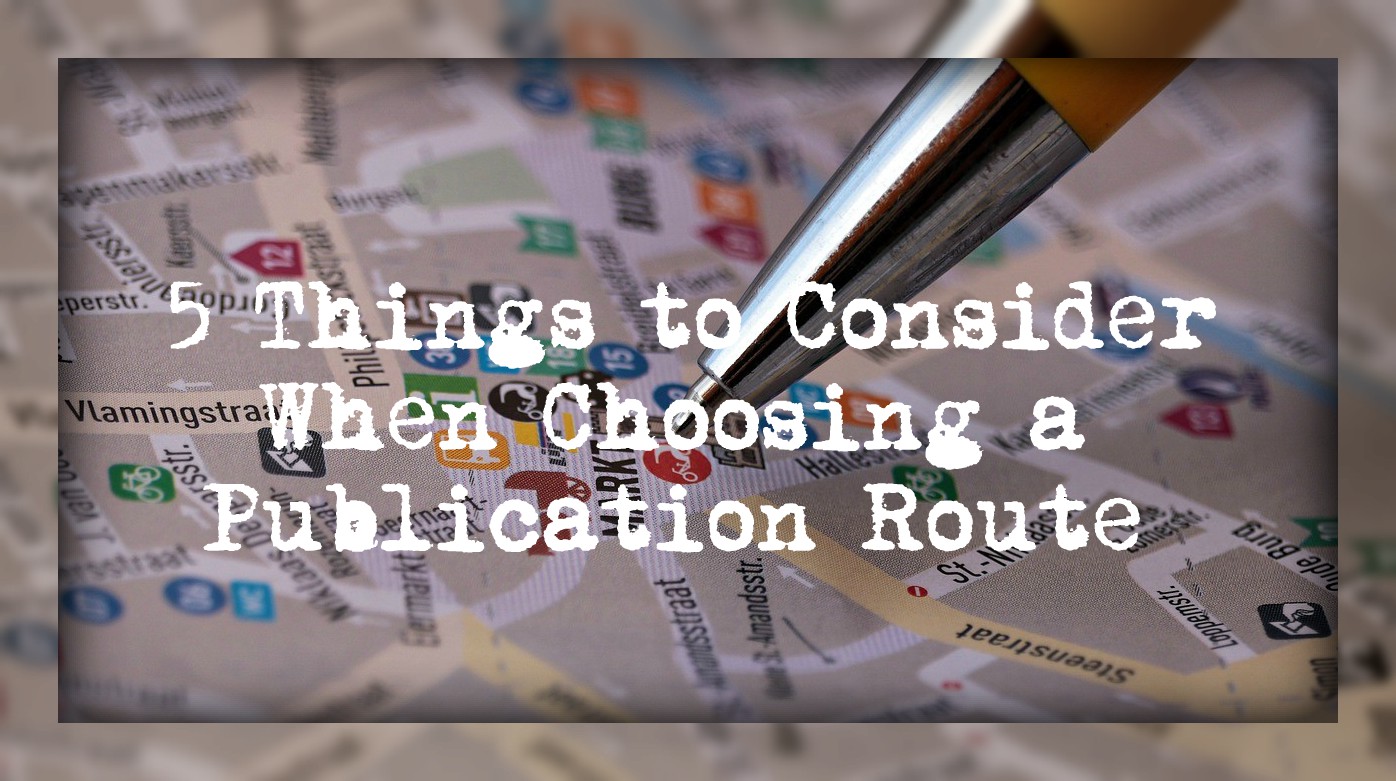 The e-mail glowing on the screen in front of me told me all I needed to know. A publisher that had been considering my novel Hunter Hunted had turned it down. A hard blow to take for an aspiring writer. What made it worse was my agent’s remark that followed in a later e-mail. “If this had been ten years ago, it would have been a slam dunk.” Finally, a last e-mail from her sealed it when she let me know that she was leaving her agency and returning to the world of editing.
The e-mail glowing on the screen in front of me told me all I needed to know. A publisher that had been considering my novel Hunter Hunted had turned it down. A hard blow to take for an aspiring writer. What made it worse was my agent’s remark that followed in a later e-mail. “If this had been ten years ago, it would have been a slam dunk.” Finally, a last e-mail from her sealed it when she let me know that she was leaving her agency and returning to the world of editing.
I knew I stood at a crossroads.
Do I start the traditional publishing process over, or do I go a different route?
For any writer, this is a hard decision to make. For someone who works full time as well as writes, it’s crucial because every minute spent for writing has to make a difference.
I thought about my options.
I could go the traditional publishing (also called trad publishing) route for fiction, which meant getting an agent, then hoping the agent gets a publisher, followed by hoping the publisher will actually produce a contract. This would yield a book about a year after I signed the contract.
I very briefly considered subsidized publishing. This would mean I would front a publishing house a lot of money for them to print a set amount of books.
Finally, I looked at what I call indie publishing (though others may call it self-publishing). In indie publishing, the author takes care of it all—drafting and editing the manuscript, designing the cover, producing the novel, and marketing—through whatever means they deem fit.
I had to do five things when making my decision. Anyone weighing the route to take in terms of publishing should consider these.
- Pray. Go ahead. Laugh. Then realize that for the child of God, prayer will always be a crucial part of any big decision. Thankfully, I was smart enough to pray about it. I asked—no, I begged—God to give me guidance because I knew that whatever decision I made would impact the approach I took.
- Seek wisdom. God gifts people with founts of wisdom in the form of family, friends, and colleagues. These folks see things in us that we can’t and can give an honest assessment related to big decisions. I talked a lot with my husband about my ideas because whatever I chose would directly impact him.
- Determine the amount of commitment in terms of time and money. The trad publishing and indie publishing routes take time and money. I had to ask myself about how much time I was willing to devote to hunting for agents versus writing if I chose trad publishing or writing, editing, and producing if I chose indie publishing. Then come the monetary costs, especially related to indie publishing vs. the monetary rewards.
- Decide what is more important. When considering either the trad publishing versus indie publishing route (subsidized publishing never entered my mind), I had to determine what meant more to me in terms of success. I had a backlog of manuscripts I knew were good but languished due to lack of an agent. Also, I knew that with traditional publishing houses vanishing faster than I could count, the number of slots for newbies like myself as well as mid-listers was shrinking as well.
- Make the decision. One of the worst decisions to make is to make no decision. I know I was there. I wanted to make that decision, but part of me was scared that I would make the wrong decision. Sometimes, we have to step out on faith and trust that God will bless our efforts.
In the end, I chose indie publishing.
I won’t say it’s been easy. Nothing worth anything ever is. I’ve learned so much about how a book is put together and what it takes to get it off my computer and into book form. I’ve learned about my strengths and weaknesses. Finally, I’ve learned about how rewarding it is to open a box of books and see one of mine in print. Does that mean that I won’t ever seek out a traditional publishing route? Not at all. But for now, indie publishing isef my path.
May you find yours.
When considering making a decision regarding which publishing route to face, what obstacles do you think stand in your way?
I have not received any compensation for writing this post. The work mentioned in this post is of my own writing. I am disclosing this in accordance with the Federal Trade Commission’s 16 CFR Part 255:
Guides Concerning the Use of Endorsements and Testimonials in Advertising.”




No Comments